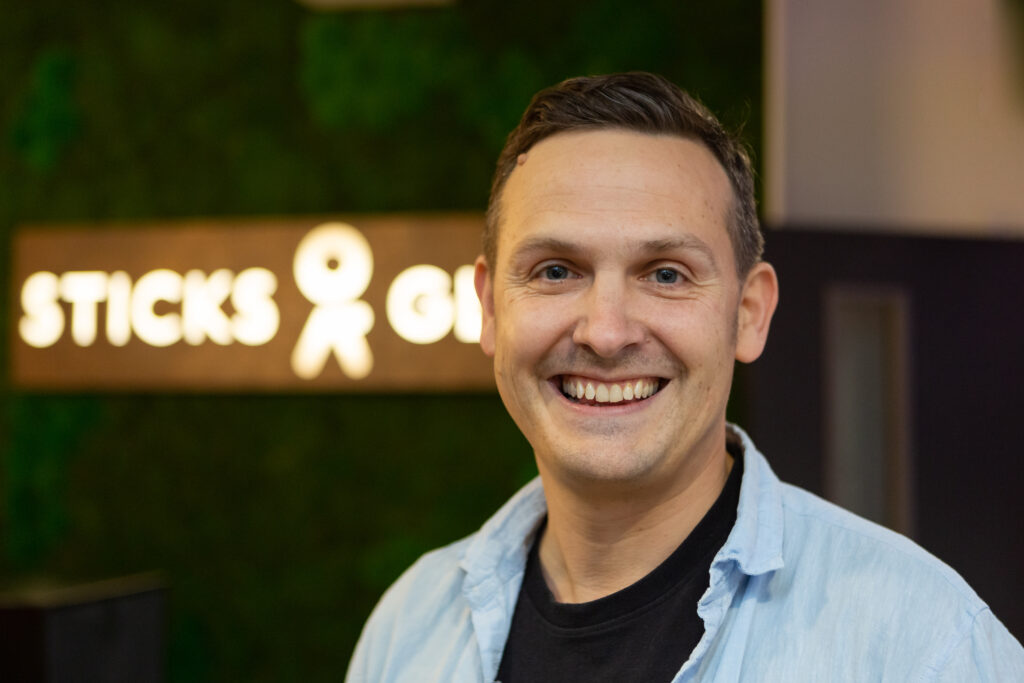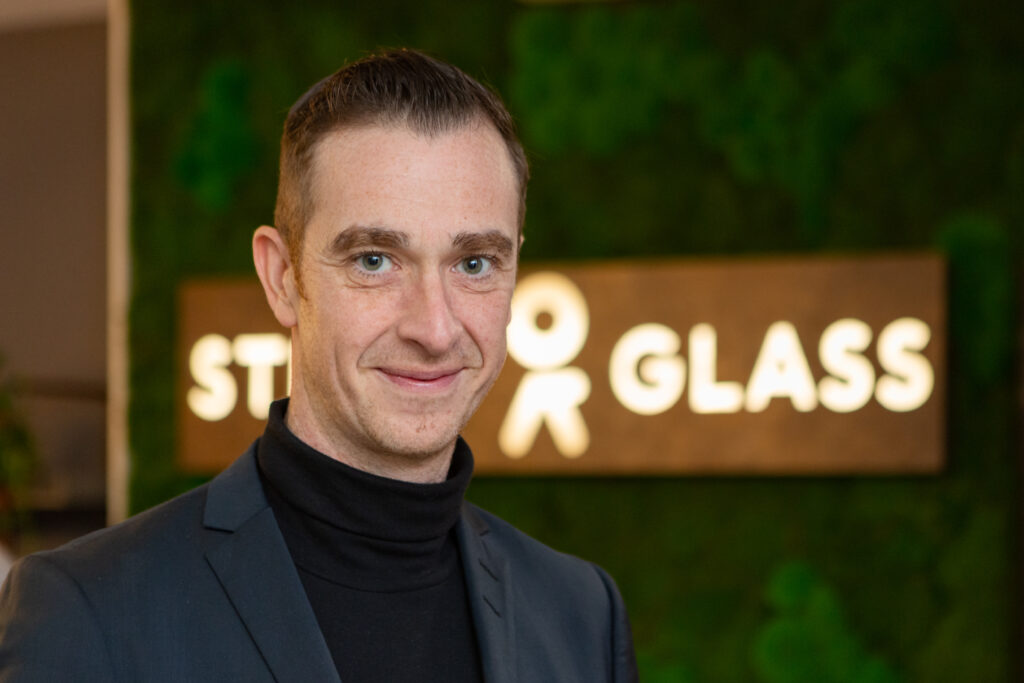Exemplas’ unique productivity programme goes beyond traditional industry boundaries, making it relevant for manufacturing, service and creative sectors, by focusing on micro-level productivity factors.
SME productivity- A creative approach:
Measuring and improving productivity might typically be seen as something more relevant to industries like manufacturing where there are very visible inputs and outputs. However, Exemplas and our partner, Leeds Beckett University, have designed, and are delivering a productivity programme using an approach which is applicable to SMEs across all sectors of the economy including the service and creative sectors.
99.9% of the 5.6 million private sector businesses in the UK are SMEs, and approximately 76% falls within the services industry.
Given that services and creative businesses make up a large part of the SME landscape, and the fact that creative companies tend to be the most innovative, supporting these businesses is a key in delivering regional economic growth.
In working with the services and creative sector businesses our expert Productivity Managers are able to help the business explore how efficiently and effectively the business uses it labour, capital, materials labour, outputs and overheads, using measures that are contextualised within their environment. For example:
- Time management of the team, management of deadlines, an understanding of the timing of the customer journey from brief to delivery, and all the potential barriers.
- Feedback processes and communication to smooth the client interaction.
- Training to improve people’s effectiveness and motivation.
- Improved briefing systems, with specific goals and strategies, and measurable KPI’s.
- Automation – Investing in technology to free-up people talent.
- An understanding and streamlining of processes.
Exemplas experience in delivering Productivity Programmes in West Yorkshire:
In delivering the West Yorkshire Business Productivity Service on behalf of West Yorkshire Combined Authority, Exemplas has deployed a unique research developed, tested and validated Productivity Improvement Framework. Developed by our partner Leeds Beckett University.
The Productivity Improvement Framework includes an in-depth diagnostic tool covering 30 productivity efficiency measures. In using the framework and diagnostic with SME businesses, Exemplas Productivity Managers are able to help businesses understand, measure and put in place targeted, focussed robust and measurable Productivity Improvement Plans underpinned by actions and metrics. Productivity Managers are assisted by Leeds Beckett University productivity experts to quality assure the deployment of the framework, and to allow the transfer of knowledge to the client, making lasting changes. The service reflects a unique approach to knowledge transfer to business support practitioners and SMEs.
SME Productivity – a creative approach in using the productivity diagnostic with Sticks and Glass in Leeds.

Productivity Programmes – A creative approach
“Sticks and Glass are a unique company serving the new and up and coming film and TV industry that is emerging in Leeds. Their state of the art suites and professional staff offer a range of amazing services in editing and postproduction services. It soon became clear whilst carrying out the LBU diagnostic that collecting the right Data would help Sticks and Glass to increase their productivity by improving usage of their valuable space and labour. Now in place this is helping Sticks and Glass to make informed decisions as they continue to expand”.
Jonathan McMullon – Productivity Manager at Exemplas.
How did Exemplas, delivering the West Yorkshire Productivity Service help a video-editing company improve their productivity in 2023?
Sticks and Glass are a post-production facility in Leeds, with eight staff members.
Post-production is essentially video editing. S&G have offline and online editing, colour grading, live remote production and a Dolby Atmos dubbing suite within the premises.
Their clients are broadcasters, such as the BBC and Channel 4, and independent production companies who create television content such as sports, features, and documentaries.
They also work with sports broadcasters such as IMG and CBS, as well as advertising agencies in London and LA. Their clients are across America, the Middle East and of course the UK, including locally in Yorkshire.
The business expanded in 2020, in response to Channel Four moving to Leeds, by acquiring investment, that enabled them to invest in both the business and the people.
They see themselves as a diverse business within the TV industry and marketing.
SME Productivity – A Creative Approach:
“When we started the productivity work with Exemplas, we were not thinking about data, we weren’t really thinking about recording these elements of the business.”
“Working with Jonathan we were able to translate and apply the productivity diagnostic tool into a structure that fitted our business. We were able to understand the key drivers of productivity for our business – time duration from order to finished goods, suite downtime, resource utilisation and labour effectiveness.”
Adam Bennett – Director Sticks and Glass.
How did the Productivity diagnostic help?
Sticks and Glass started to record baseline data across a series of productivity measures such as time duration from order to completion, editing suite utilisation and labour effectiveness.
Before they started this programme the information was very much anecdotal and lived in their heads, now it is measured and tracked.
For example: They would measure the usage of their editing suites. Edit Suite Four could have a 90% capacity one month, versus Edit Suite Two which might have 75% capacity.
“It’s been very useful to us to pull out graphs and charts around room capacity. It is a tangible and easy play on productivity in general, an illustration if you like, which makes it work for us as a creative business. We cannot use all the productivity measures of a business that sells coffee beans or one that sells hotel rooms.”
“As a customer-service driven organisation we cannot run a business without a knowledge of productivity. For us, being unproductive is very obvious. Inactivity for my business is having four or five people sat in a room chatting all day as there is no work. It is a very visceral understanding of when we are not productive. So, when we started the West Yorkshire Business Productivity Service programme we were aware of what productivity was for us, but we didn’t really have any ideas of how to get a baseline, nor did we have tools or metrics in place to measure it.”
Adam Bennett.
How has the West Yorkshire Productivity Service Programme impacted the business in the first year?
For Adam and Verdy at Sticks and Glass, the programme is still in its early days. They are still in an observational stage, where they are understanding the business retrospectively. They are in a data capture mode and are viewing their overall capacity in a slightly longer-term approach than before. They can see if they need to allocate additional freelance support, or if it is quieter, look to undertake some training for the team. The data allows them to make more informed decisions.
“I think that it probably helps us at this evolutionary-stage as a business. A couple of years ago we were just, living month-to-month and making decisions on gut instinct. Now we are able to have a much more long-term approach on key decisions in the business.”
Adam Bennett.
Does having a more data-driven approach supports investment?
Having a more data-driven approach does support investment. It gives investors on the company board more visibility and comfort, as well as helping make key decisions within the business.
“Our communication with them is now no longer just based on anecdotal evidence. Our board needs to see data, and to understand our data-based assumptions. They were used to Verdy and I giving them anecdotal positive bits of information and negative bits, but they much prefer something that’s backed up by data.”
Adam Bennett.
How long will the programme impact a business?
For Sticks and Glass, they have just completed a one-year cycle with the programme, but for them it wasn’t enough. They felt that just looking at month-by-month data they weren’t able to see trends, and that it is only after a full year, that they saw some real insights into their business.
“I think the very first time we saw interesting data was when we took completed a 12-month cycle on one of our measures. And you’re like, oh, now I can see a trend. I think the benefits to the business are quite tangible, are quite strong, but they’re all about long term benefits.”
“In 12 months, 24 months, 36 months the benefit of that – is the ability to inform our decisions and to then make better decisions, the ability to transparently communicate upwards to the board to show where we are, how we got there, and back it up with data. It makes us just a much more mature business, that is easier to invest in.”
Adam Bennett.
How will this impact future plans for the business?
Sticks and Glass have very ambitious plans for the future, and it’s not just about how well the business does in a liquidity sense, for them to grow and fulfil that ambition, they will need further investment. Data-driven insight that lends itself to future growth, will form a part of the pitch to new investors, giving them reassurance of the business management capability and grasp of key dynamics that drive the future profitability of the business.
“I think the benefits of the work we’ve done around the productivity programme will be slow incremental long term, but potentially it is also the most important thing. Nobody’s going to invest in us based purely upon our data, but I think it might just make us a much easier business to invest in.
Of course, there is a much more important metric than the day-to-day operational results. The chances of someone walking in and investing £5 or £10 million into our facility to help us achieve our dreams of what this business can potentially become, will ultimately become a much important output.”
Adam Bennett.
Contact us:
Rob Sale – Business Development Manager: business@exemplas.com
Adam Bennett = Director at Sticks and Glass: adam@sticksandglass.com
Jonathan McMullon – Productivity Manager West Yorkshire Business Productivity Service: Jonathanm@exemplas.com

